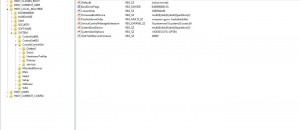A new study by researchers from Boston’s Northeastern University and the French Eurécom claims that uploaders of pirated content (aka copyrighted content) to cyberlockers (or file sharing sites — like MegaUpload) aren’t doing it for the money. This is in contrast to what the MPAA claimed last year, saying that the file sharing business is “all about the money” and citing examples of sites that encourage uploaders with cash.
The paper by the researchers, “Paying for Piracy? An Analysis of One-Click Hosters’ Controversial Reward Schemes”, attempted to determine how much these file uploaders earn, and if the earnings are substantial enough to be the prime motivator for them to continue their activities. They did this by analyzing publicly available data, with a focus on two particular sites well-known in France for hosting and streaming pirated content, dpstream.net and redlist-ultimate.be.
One of their findings is that majority of the income generated for the uploaders through affiliate programs (the main method file uploaders get money from these file sharing websites) is concentrated to a small portion of the top uploaders of the sites. The example given in the paper is that on dpstream.net, “the top 4 uploaders earn more than 30% percent of the income and the top 50 users receive almost 80% of the total income and provide around 70% of the links”.
Despite the large percentage of the income going to these top uploaders, it doesn’t necessarily mean that they are making large sums of money. In fact, the researchers note that “even the top uploader can earn only $5.26 per day”. While $5.26 per day may be a significant amount in a developing nation like Pakistan or India, it is something most Westerners would scoff at. The exception to this rule is the top file uploader on redlist-ultimate.be who earns $113.17 a day — but in order to reach this amount, which is just slightly above minimum wage in France, 8 hours of work uploading files would need to be done every day.
Another interesting tidbit of the study, as noted by TorrentFreak, is how the researchers simulated the removal of the affiliate programs, which would effectively remove the income stream for uploaders their income stream, by taking the top 50 uploaders out of the overall data. The results are surprising, because while more than 58% of links were removed via the simulation, content and traffic would took a significantly smaller hit with almost 40% and 21.7% being lost, respectively.
Overall, the findings state that users illegally upload copyrighted content despite barely earning anything from doing so. It paints an interesting picture about an aspect of piracy that isn’t looked at very often: are pirates selfless individuals who choose to share content, despite being illegal in many countries, for the “greater good”? Or is there a subset of pirates that do earn a significant sum by uploading, thus leading others to aim for the same result? dotTech has no concrete answer for you on this one, but it is worth thinking about.
It should be noted even thought the study focused only on two major sites based in one country, the structure of these sites is largely the same as other file sharing websites around the world. So while one may argue that the research didn’t look at a proper subsection of the file sharing world, the trends are likely similar across the map.
[via TorrentFreak, Paying for Piracy, image via Olivier Bruchez]

 Email article
Email article




